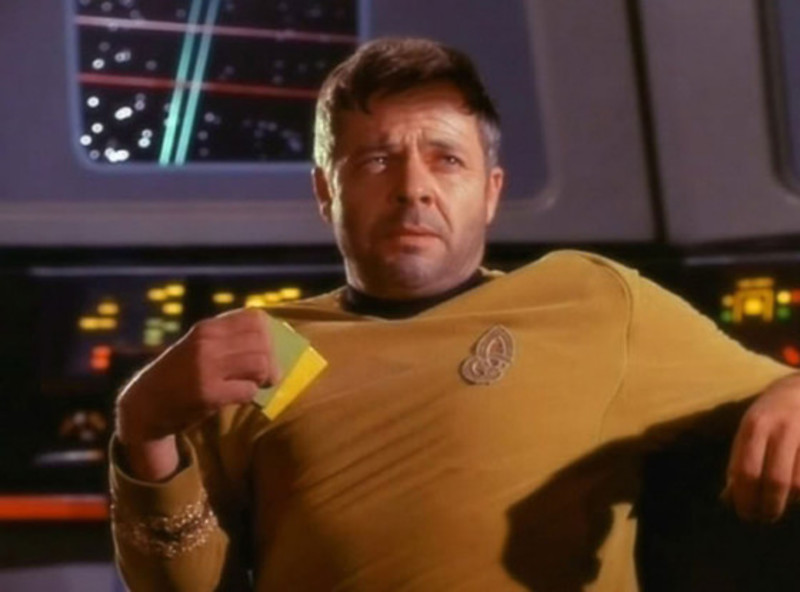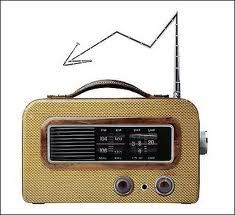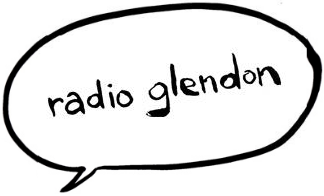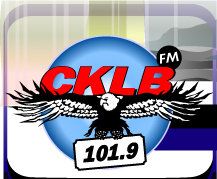With all the Oscar buzz around Steven Spielberg's "Lincoln" it's worth once again looking at how a film deals with the presentation of real historical figures. This is not Spielberg's first film dealing with slavery, the previous being "Amistad" in 1997. That film featured not one but two American Presidents dueling over slavery; former President John Quincy Adams (Played by Anthony Hopkins), arguing the abolitionist position while current President Martin Van Buren (Nigel Hawthorne) stalled, dithered and tried to rig the trial to protect the slavers and stop the debate from messing up his re-election chances. Hopkins' performance as Adams was widely acclaimed for it's heartfelt and realistic portrayal of the brilliant and idealistic if crotchety ex-president, however the treatment of Van Buren was another matter. As played by Hawthorne Van Buren is portrayed as a shallow, fatuous, cynical, underhanded coward with no convictions at all. In fact the real Van Buren was far more nuanced. He did in fact dislike slavery and while he stayed neutral in the slavery debate while president he did become an active slavery opponent afterwards, even allowing his name to be used as the candidate for the launch of the Anti-slavery Free Soil Party in 1848. Ironically with none other than John Quincy Adams' son Charles Francis Adams as his running mate, facts the film did not even hint at. Van Buren may be criticized fairly enough for not taking a forthright stand while president (although slavery was of course completely legal then) but it's simply unfair to portray him as in any way pro-slavery which he clearly was not. And while it may be outside the scope of the film to look at what happened later, some sort of epilogue explanation of what happened to the films major figures would have been helpful, especially given the way Van Buren was portrayed in the film. Obviously Spielberg felt the film needed an obvious villain at the top and Van Buren provided an almost cartoonish foil. From a story telling standpoint I can understand this although for my money showing a more conflicted Van Buren wrestling with the conflicts of his own conscious versus political realities and the limitations of the office would have been more emotionally involving. It also would have been a lot more fair to Van Buren, who is not exactly a house-hold name anymore. It also would have been accurate, if that matters to anyone.
Personally I believe that makers of historical fiction have a special responsibility to get their story and portrayals as accurate as reasonably possible. One should always keep in mind that these characters were real people who actually lived, did things and said things, often controversial things. They should be treated fairly and get the credit for the things that deserve it and the blame for their failings. There is also a responsibility to the audience, many of whom are not historians and whose only knowledge of these characters and events might come from a Hollywood movie. I accept that historical drama is not the same as a documentary and that drama filmmakers get to, and indeed need to, take certain liberties in service to telling the story. They sometimes need to compress time, leave out certain events and condense several characters into one composite to save time. They get to imagine dialogue that may not have happened to explain information to the audience. They get to simplify complex political, military or scientific concepts and debates so laymen can follow the story. All literate film-goers understand this and accept it easily enough. The question is however at what point are these changes actually changing the real story in important and possibly unethical ways? And are all such changes actually needed to tell the story? Or are some of them just lazy or sloppy?
Such films as "Braveheart" and "The Untouchables" are the most notorious examples of historical epics that are so wildly inaccurate that historians just threw up their hands in exasperation at the task of debunking them. These were merely annoying but harmless enough. More offensive was a World War Two film from a decade back, the title of which I can't recall, which had the Americans single-handedly cracking the German Enigma code by finding a copy of a code machine on a captured sub whereas all the real work was done by British and Polish codebreakers with no American involvement at all. The British were more than a little miffed by that one. On the more highly charged topic of civil rights there was the classic "Mississippi Burning" which showed the F.B.I. as the heros of the civil rights movement with nary a hint of the role Hoover played in trying to destroy Martin Luther King. That was beyond the childishly jingoistic war film and was blatant conservative revisionism that was only slightly mitigated by the undeniable emotional power of much of the film which does not pull any punches about the evils of Jim Crow and some fine acting.
So how does "Lincoln" stack up? Note that while the credits state that the film is "Partly based on Doris Kearns Goodwins' "Team Of Rivals", a classic work about Lincoln, her book only deals with the passage of the 13th Amendment in a few pages, and as we shall see, little of which is in the film.
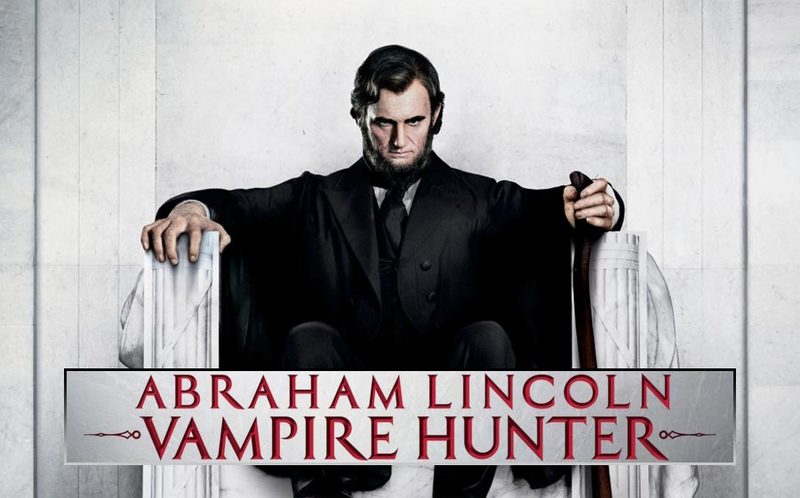
Daniel Day Lewis makes a fine Lincoln with his hunched, haunted face and tired, creaky voice masking a steely determination and a crafty wisdom about human nature and politics. This portrayal is light years away from the previous Lincolns played by Raymond Massey and Henry Fonda as an impossibly noble and remote statue-like figure. Lincoln was not always played that way however, in fact Sam Waterston also played Lincoln in a 1989 TV mini-series which is available in DVD. His portrayal is closer to Lewis's although Waterson is considerably less world weary. Lewis gets aclaim for his voice and accent, although at this point we can not really know exactly what Lincoln sounded like. Lewis did his usual research (remember his characters from "Gangs Of New York" and "There Will Be Blood") and his Lincoln sure sounds right. Most previous portrayals of Lincoln usually had him speaking in a deep, somber voice we used to imagine appropriate for historical figures. However contemporary accounts point out that Lincoln in fact had a rather weak and slight voice as here. Sam Waterson also went with this approach but Lewis' voice sounds more lived in. As an aside I have heard contemporary recordings of figures like Teddy Roosevelt, Woodrow Wilson, William Jennings Bryan, William Howard Taft, JS Woodsworth, William Aberhart, Billy Sunday and Booker T Washington and they all turned out to have higher pitched and flatter voices than expected, in some cases considerably so. For some reason we just expect them to sound deeper and more pompous. Lewis probably gets this right.
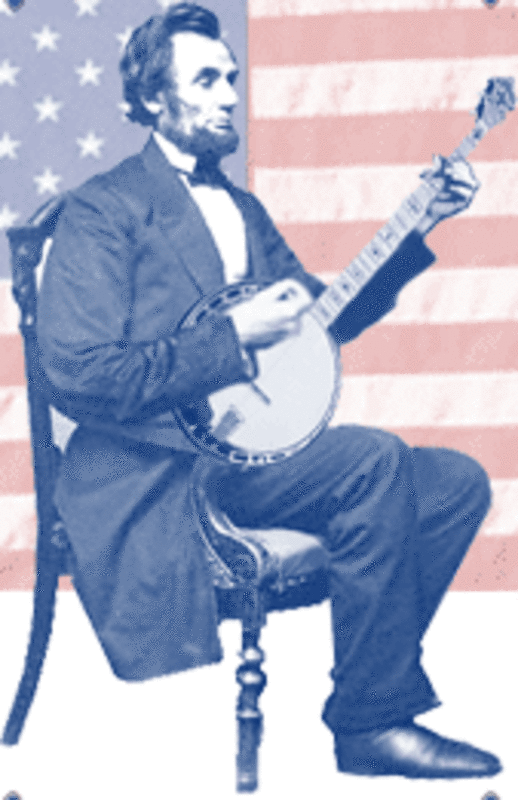
Sally Field is also excellent as Mary Todd Lincoln. This misunderstood woman has come down in history as a mentally and emotionally unbalanced woman who would later be committed. In fact the evidence shows that her mental breakdown came later in life, after the death of Lincoln and another of her sons sent her over the edge. Earlier in life she was known as a shrewd and ambitious woman who pushed for her husband. When younger Mary Todd was considered quite a catch for an ambitious politician and as a note of trivia Mary has the unique distinction of having dated three of the presidential candidates of 1860; Abraham Lincoln, Stephen Douglas and John Breckinridge. A record that will surely never be repeated. In the previous Sam Waterston version Mary was played by Mary Tyler Moore who did a good job but Sally Field's Mary is an altogether tougher and smarter character.
MARY TODD LINCOLN;
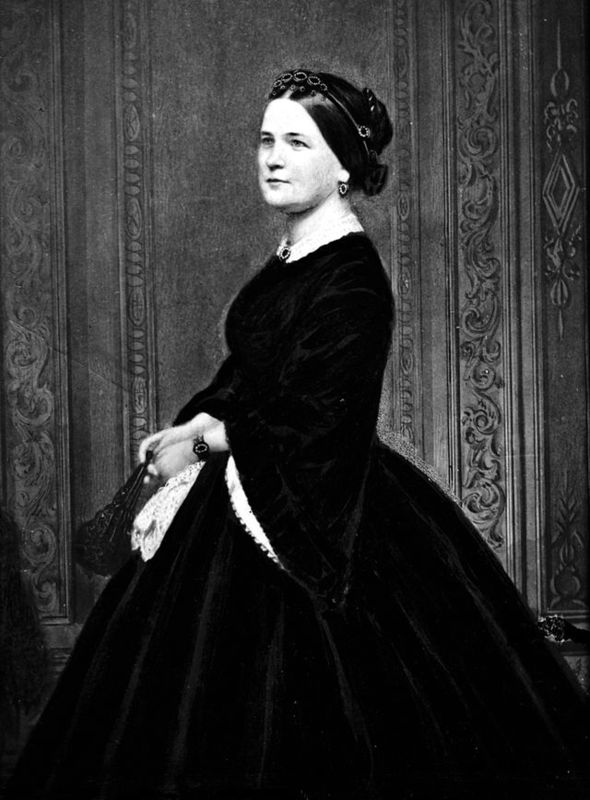
The third major character is that of Thadeus Stevens, one of the leaders of the Radical faction of the Republican Party. Stevens was a grim, hatchet faced man with a club foot and a bad wig known for his steely determination to end slavery at all costs and use the power of the federal government to destroy the power of the slave owning Southern Aristocracy once and for all. As Chair of The House Ways And Means Committee Stevens had great power, including the power to investigate waste in the White House and War Dept, which he did with great vigor. All of this is mentioned by Mary Lincoln in the movie. The subject of Mary Lincoln's over spending was given more detail in the 1989 mini-series but of course that film was twice as long. As played by Jones he is a hard man with an short temper and an abrasive tongue who does not suffer fools or lesser mortals at all. Including Lincoln who he does not consider up to his high moral standards. He believes Lincoln to be a weak compromiser who has moved far too slowly to end slavery. He resents having to temper his public comments even a little in order to get the proposed constitutional amendment banning slavery passed. The real Steven was apparently even more irascible in real life. Jones doesn't actually look much like the frail, pinched-faced Stevens but he embodies the role so perfectly that you don't even notice that his character doesn't actually do very much. Jones' Stevens does have a deep resonant voice because he's Tommy Lee Jones, but we'll let that pass. In the film Stevens is revealed to be having an affair with his black house-keeper. Although never proved this was widely rumored at the time and later and is generally accepted as likely. The film's reveal is done in a subtle and touching way which is certainly a change from how the relationship is portrayed in D.W.Griffith's 1915 film "Birth Of A Nation" where the maid is shown as a manipulative, vindictive, tramp who stirs up Stevens to punish the defenseless white south. Stevens died, still in office in 1868. He demanded in his will that he be buried in a desegregated cemetery.
THAD STEVENS;
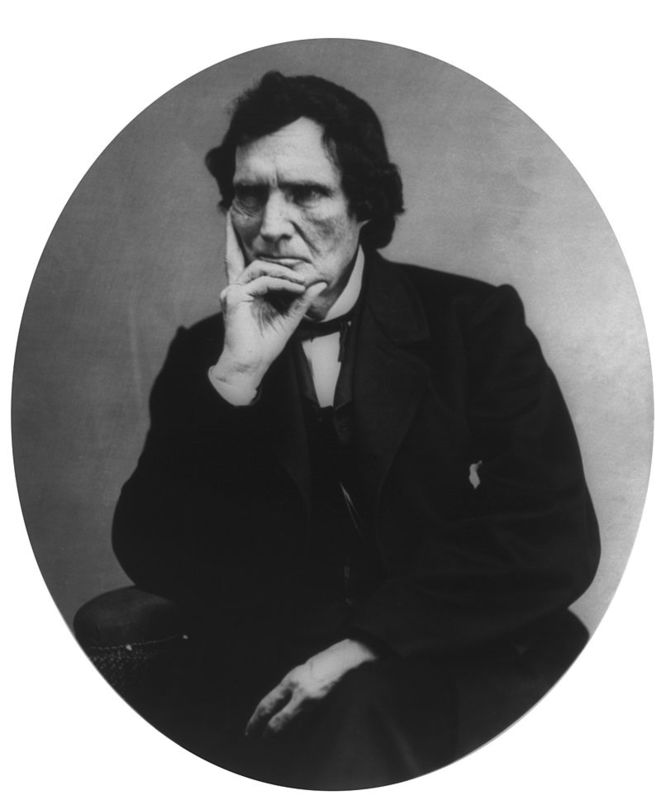
Other major characters in Lincoln's circle are Secretary Of State William Seward played by David Strathairn, best known for playing Edward R Murrow in "Goodnight And Good Luck". Seward was originally a rival for the presidential nomination who at first resented Lincoln's presence in the White House considering him a crude bumpkin. By the time covered by the movie however Seward had revised his opinion of Lincoln and had become his most loyal and dogged adviser, a role Strathairn fills here with a fair amount of shrewd but exasperated concern. This role had been filled in the 1989 TV version by Richard Mulligan who did a fine job but lacked Strathairn's depth. It helps that Strathairn also looks closer to the real Seward.
WILLIAM SEWARD;
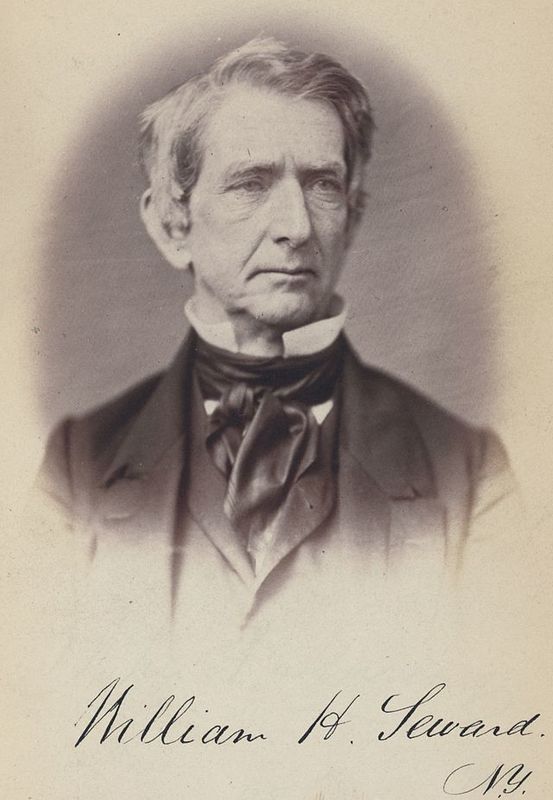
War Secretary Edwin Stanton is played by Bruce McGill with the appropriate bluster and foul temper the real Stanton was known, and feared for. Again McGill also looks quite similar to the real Stanton. Nothing to quibble over here.
EDWIN STANTON;
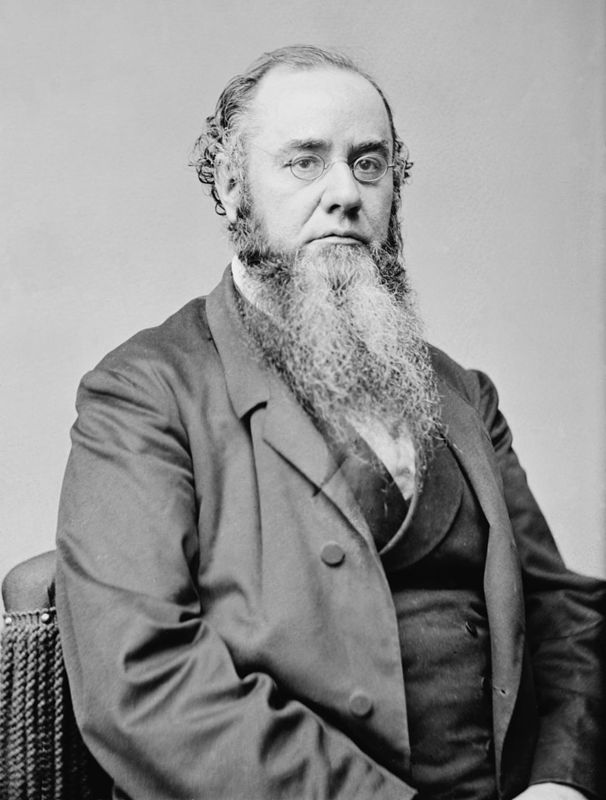
Some of the other characters are an odd and not always necessary mixture of reality and complete fiction. The other two leaders of the Radical Republican faction in the House Of Representatives are James Ashley and Asa Vintner Litton. James Ashley was a real person who was indeed one of the House Radical leaders. Unlike Stevens whose personality has been pretty well written of, Ashely is little known as a person so it's impossible to know how accurate the portrayal here is. However in the movie Ashley is seen as being somewhat reluctant to submit the bill to a vote, not due to any reluctance to end slavery but because he doesn't believe they have the votes to pass it. This is not really fair to the real Ashley who was in fact something of a hot-head. Ashley was actually a leader of a faction calling themselves "Ultra Radicals" who were constantly pushing Lincoln to move farther and faster than he thought politically wise. His portrayal here as more cautious is a reversal of roles from the real Ashley in this respect. I suspect the real Ashley would be a little insulted by this.
JAMES ASHLEY;
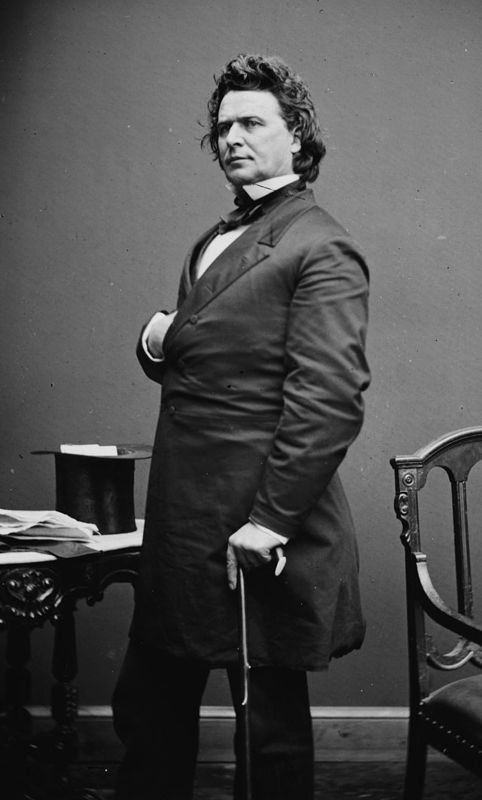
The character of Congressman Litton is actually a huge and puzzling disappointment. Not because there is anything wrong in actor Stephen Spinella's heartfelt portrayal but because for some reason Spielberg saw fit to create a completely fictional character where he didn't need to. In the movie Litton is another Ultra Radical leader who is harshly critical of Lincoln for not moving faster to end slavery and states that he doesn't trust Lincoln, originally advocating holding the amendment to wait for a new congress that will be sworn in a few months. Litton also wants guarantees for racial equality and black suffrage which are not included in the proposed amendment. Litton even scolds Stevens for pulling his punches during a debate. Litton believes in full racial equality and says so. He has no patience for anyone who does not. With such a noble and idealistic character it comes as real disappointment to find out that the character is actually completely made up. Litton is believed to be based on a real Congressman named Henry Winter Davis who was another one of the leaders of the Ultra Radicals to the left of Lincoln and occasionally even Stevens in spite of the fact that he came from the pro-Southern slave state of Maryland. Davis had been one of the sponsors of an 1864 Bill which would have not only ended slavery but would have guaranteed equal rights for blacks including suffrage and set harsh terms for allowing Southern States to rejoin the union. Lincoln had allowed the bill to die even after it had passed the House and a bitterly disappointed Davis had written a harsh "Manifesto" attacking Lincoln as both a weakling and a tyrant for vetoing the bill. Davis was so uncompromising in his advocacy that he was probably out of step with the many of the voters of Maryland but he would not back down even at risk of losing his seat which may have been a factor in his not seeking re-election in 1864, a fact mentioned in passing here by Stevens, although Steven's implied that Vintner had lost re-election which he had not. Winter's health may also have been a factor in his not running in 1864 since he died the next year. Since Asa Vintner Litton is so similar to Henry Winter Davis I simply can not understand why Spielberg didn't just name the character as Davis in the first place. Surely Davis deserves a little bit of credit for taking such brave and forward thinking positions. I can see no reason for making up a fake character when there was a real one already there. As it stands Henry Winter Davis remains a trivia question for a few scholars of the Reconstruction Era, and the only fleeting public recognition he would have ever gotten would have been on this film. By changing the name he was denied even that. He deserved better.
HENRY WINTER DAVIS;
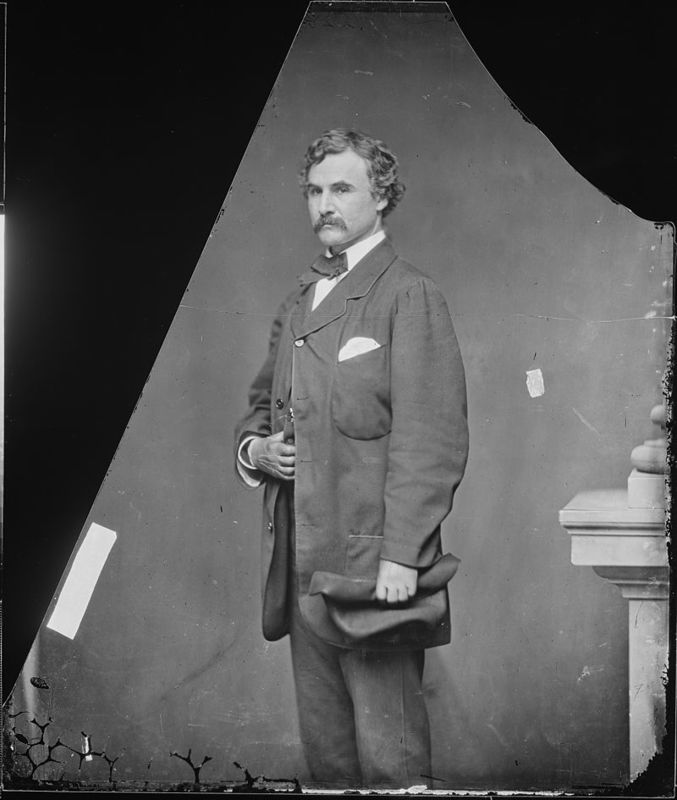
Although the Litton character most closely resembles Henry Winter Davis it's possible that Litton may be a composite of a two other Radical Congressmen; Ignatius Donnelly and George Julian. Donnelly is the most interesting and eccentric of the group and would have made a great character on his own. From Minnesota, Donnelly was the most extreme of the Ultra Radicals famed as a fire breathing orator. Besides fighting for racial equality he was also an early advocate for women's suffrage, worker's rights, better treatment for Indians, breaking up monopolies, government takeover of the railways, slum clearance, cheap land and loans for farmers, in short every left wing cause of the next century. In his long and uncompromising activist career he would become a founder of the Populist Party. In fact he would be a left winger even today. All this is admirable enough but what really makes Donnelly standout were his extra-curricular activities. A prolific writer of utopian science fiction, Donnelly was also one of the originators of the idea of an ancient civilization living in Atlantis. He also wrote about civilizations living in the center of the earth and a possible comet strike on earth in pre-historic times which was responsible for changing the earths rotation and sinking Atlantis. If that weren't enough he was also one of the founders of the "Francis Bacon actually wrote the works of Shakespeare" conspiracy theory. All in all a strange guy who if he were around today would no doubt be searching for UFO's. And possibly finding them. I know he doesn't warrant much time in a film about Lincoln but it's too bad they couldn't give him a line or two.
IGNATIUS DONNELLY;
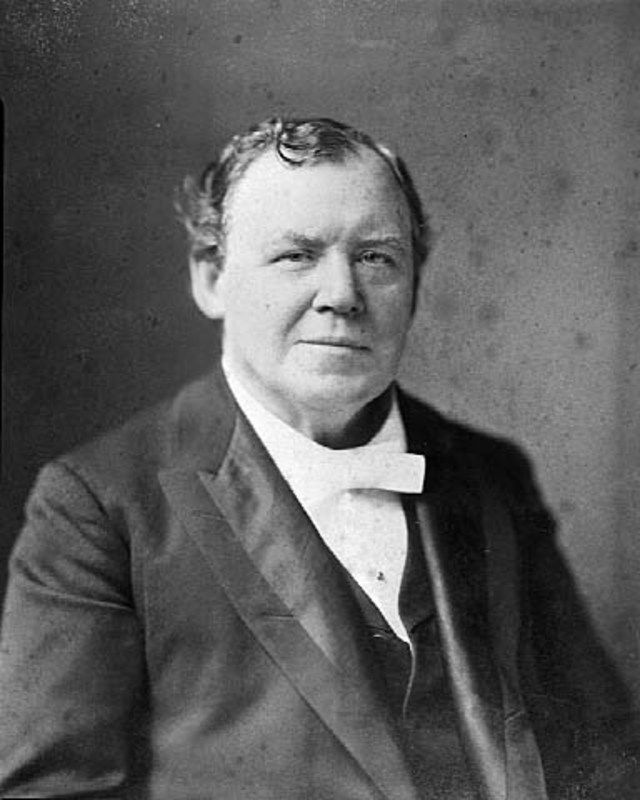
George Julian was another Radical leader, albeit less fire-breathing than Davis or Donnelly. He wasn't as colourful as Donnelly either, but then who is? Note how the names of these men can be broken down into the Litton character; Asa vs Ignatius, Vintner vs Winter and Litton vs Julian. Personally I would have greatly preferred simply using the name of Henry Winter Davis (as the most important of these men) with some sort of token mention of Donnelly (the most colourful). There is another Radical who is shown in some meetings with Stevens and the others. I assume he supposed to be Hiram Price, another real Radical Congressmen of the time, whose name is in the credits. I would have exchanged Price for the more colourful Donnelly.
The leaders of the more cautious conservative faction of the Republican Party are the Blair family led by Hal Holbrook as Francis Blair. The conservative Blair wants Lincoln to hold off the amendment believing it will ruin any chance of a negotiated peace. The real Blair looked nothing like Holbrook being a rather cadaverous old man by that point but this is not a real problem since few people would have reason to know this and Holbrook is a fine actor who gives the role his usual crotchety gravitas.
FRANCIS BLAIR;
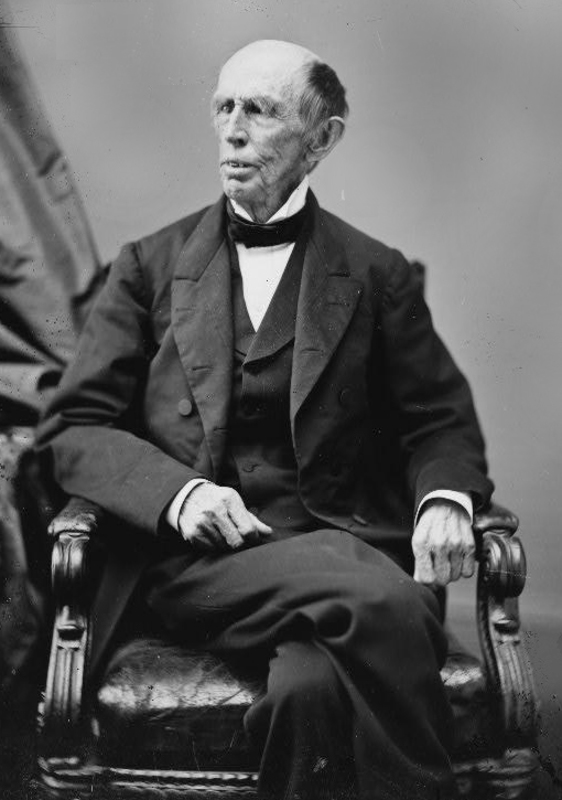
Blair's lieutenant in the House (Blair himself is not in Congress) is apparently based on James G Blaine, a Congressman from Maine. The actor playing him looks similar to the bearded Blaine and his rather pompous manner conforms with what is known about the real Blaine. Although again the character is given a made-up name of Arron Haddom. Again I can see no reason for this. Blaine was not an inspiring figure like Henry Winter Davis but he was an important one. He later became a powerful senator and an important power broker in the Republican Party becoming the party's candidate in the 1884 election (which he lost to Grover Cleveland) and later Secretary Of State. Incidentally the character mentions that he speaks for the "Conservative Faction Of Western and Border States" for which he is given an accent. This is not true either. Of the dozen or so self-proclaimed Conservative Republicans in the House about half were from slave-owning border states like Missouri, Kentucky and Maryland while the rest were from New York, Illinois, Indiana and even Massachusetts while Blaine was from Maine. Blaine died in 1893.
JAMES BLAINE;
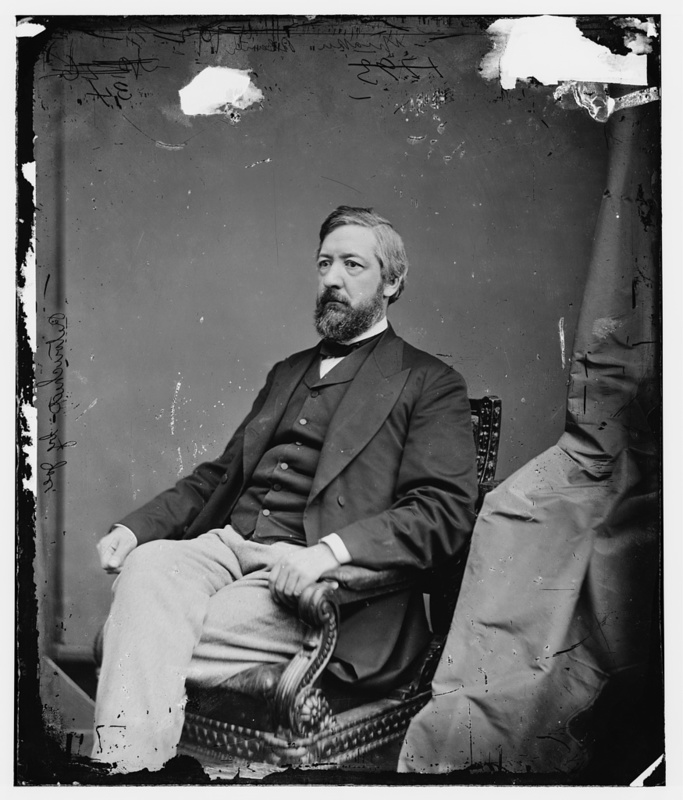
The leaders of the opposition Democrats are congressmen Fernando Wood and George Pendleton as played by Lee Pace and Peter McRobbie. These are both real characters who had long and noteworthy careers in real life. Wood was an especially colourful character who almost seems to be out of fiction. Starting out as a saloon keeper he invested in buying a shipping company and California gold mines and became quite wealthy before entering politics becoming mayor of New York in 1858. Wood started out with a good record as a reformer; cleaning out corruption, cutting waste, keeping the streets reasonably clean and shutting down hundreds of illegal saloons, brothels and gambling dens. There was talk of running Wood as a possible future governor or even president. However when it came time for his re-election Wood realized that having fought with the corrupt Tammany Hall New York machine meant that he could probably not get re-elected. So he patched things up with Tammany, managed to win re-election and then promptly rewarded Tammany with an orgy of corruption shocking even by New York's tolerant standards. Bribery at all levels of government, especially the police and fire departments was endemic and the famed Gangs Of New York were allowed to run amok at will. At one point the Republican Governor took the unprecedented step of disbanding the hopelessly compromised New York Police Dept. and replaced them with a new "Metropolitan" force. Mayor Wood took the even more unprecedented step of simply ignoring the Governor's order and hiring his own "Municipal" police force. This led to the unique position of New York having not one but two competing police forces. This did not make the streets any safer though since the two rival forces worked hard to undermine each other. If one force arrested some gangsters the other force would invariably have them released (after appropriate bribes were paid) and saloons and brothel keepers could not keep track of who to bribe. It got so bad that rival groups of "Metropolitans" and "Municipals" would actually fight each other in the streets leading to full scale police brawls. Eventually the Governor had enough and had Wood himself arrested. The charges were soon dropped, however Wood was in jail long enough to have his "Metropolitans" disbanded. When the Civil War broke out Mayor Wood gave serious consideration to declaring New York an independent city-state like Venice or Florence in renaissance Italy. Wood openly opposed the war as well as the draft and the tax increases to pay for it, advocating instead for a negotiated peace which would have allowed slavery to continue. Although Wood did indeed oppose the anti-slavery amendment he was not as partisan as this film allows, in fact in Doris Kearns Goodwins "Team Of Rivals" Wood is shown giving a massive party which Republicans attended. After the events of the film Wood made another attempt to run for mayor of New York which he again lost. After that he returned to congress rising to the position of Chair Of House Ways And Means Committee after the Democrats regained control of the House, ironically the same position as his old antagonist Thad Stevens. Wood stayed in congress until his death as a respected elder statesman in 1881. Lee Pace seems a little more young and handsome than the real Wood but that's normal enough for Hollywood. Pace does capture enough of the flashy charisma the real Wood must have had. It would have been outside of the scope of this film to get into Wood's backstory but it's too bad Martin Scorsese didn't add him into his "Gangs Of New York" which actually did take place during part of Wood's tenure. Wood may have been a cynical opportunist and a reckless demagogue but his larger-than-life personality and history is tailor-made for film.
FERNANDO WOOD;
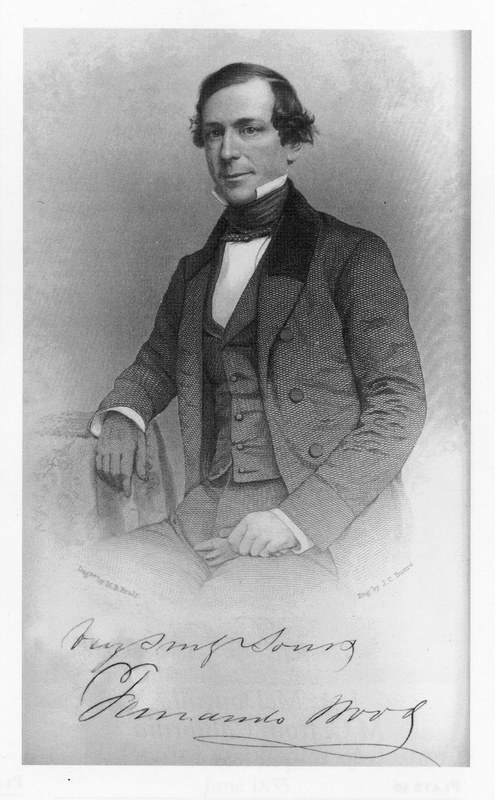
George Pendleton was a Democratic congressman from Ohio who had also opposed the war much as Wood had. Pendleton was indeed a Democratic leader and had been the Democratic Vice-Presidential nominee in the 1864 and some of the racist comments made in the film are certainly in line with those made at the time. As played by Scottish actor Peter McRobbie, Pendleton is a crafty master of debate and house procedure which seems accurate. To be fair; the real Pendleton's up-and-down career ended honorably enough. He was defeated when he ran for governor of Ohio by Rutherford Hayes in 1869 but was successfully elected to the senate in 1879. He became a leading advocate of reforming corruption and patronage in government, bringing in the first major such law to reform government in the Pendleton Act. To do so he had to reach across the aisle and work with Republican President Chester Allan Arthur and in opposition to conservatives like James Blaine. His reward was to lose re-election but he would later be appointed ambassador to Germany by Democratic President Grover Cleveland. He died in 1889.
GEORGE PENDLETON;
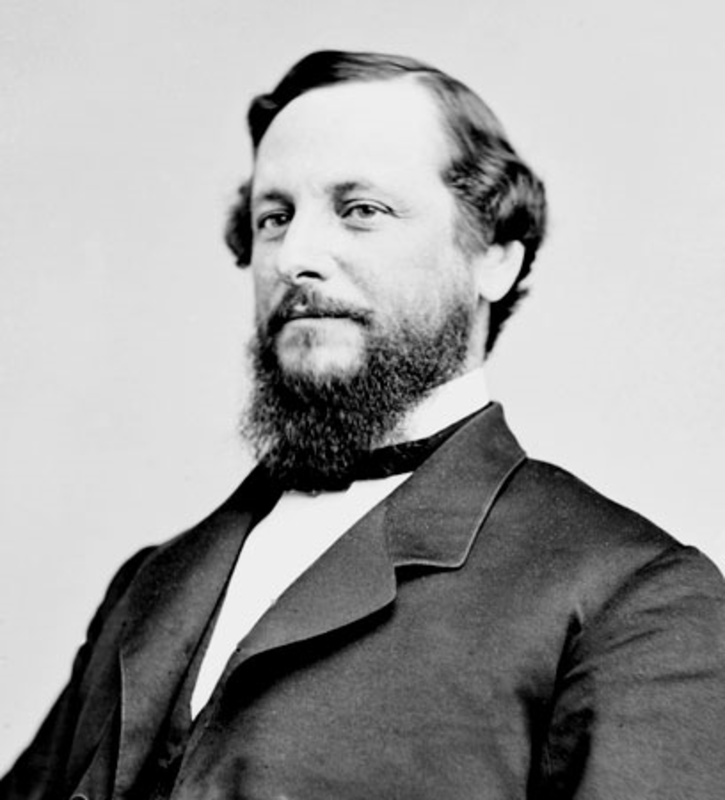
The Speaker of The House Schuyler Colfax was a real person who was indeed House Speaker and he did actually break tradition to vote for the amendment. Colfax was known as a friendly backslapping type of politician with few strong convictions so he comes off rather better here. Unlike Pendelton however Colfax's career ended in scandal and disgrace. He was elected to the Vice-Presidency in 1868 under Ulysses Grant, but his career came to a screeching halt when he was involved with the Credit Mobilier scandal which enveloped a number of mostly Republican congressmen. He just managed to dodge a censure and did not run for re-election, he died in 1885. The Credit Mobilier scandal led to the Democrats regaining the congress and later the White House and the passage of the aforementioned Pendleton Act.
SCHUYLER COLFAX;
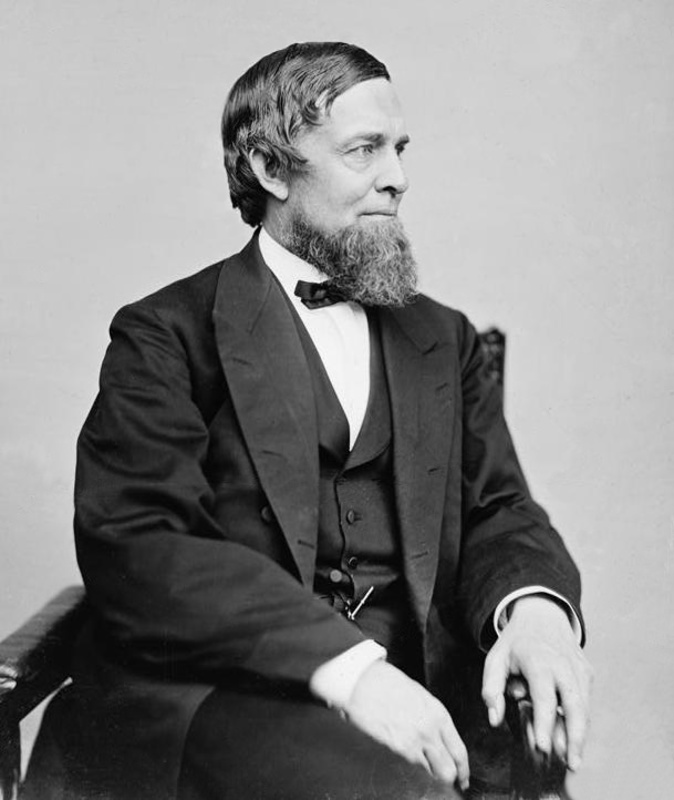
The film features several congressmen who are considered swing votes and are wooed by the White House using various methods, some less than ethical. Some of these scenes are thoughtful while others are played for laughs. Unfortunately most of these characters are completely made up. Two however were real people, Alexander Cawfroth and George Yeaman.
In the film Cawfroth is a Democratic congressman who trades his vote in a deal with Stevens. It seems that Cawfroth's recent re-election is in dispute and in exchange for changing his vote and switching parties Stevens will see to it that Cawfroth will be recognized as the victor. Cawfroth is portrayed as a simpering, stammering, coward and the scene between him and Stevens is played for laughs which is probably why it's in the movie because it certainly isn't based on fact. Cawfroth was a real congressman from Pennsylvania, a Democrat who did indeed vote for the amendment, however it would appear that he did so out of real conviction rather than as part of any deal. In a speech justifying his vote Cawfroth explained that he was voting yea because he agreed that in order to win the war and avoid a future one it was necessary to break the economic and political power of the Southern aristocracy and that meant ending slavery forever. He further states that if his yea vote ruins his career than he would happily accept this. In the film his vote is shown as a last minute surprise that outrages his fellow Democrats, in reality he had already anounced his intentions and made his speech beforehand. It's worth pointing out that the Democrats were not united in their opposition. Most did oppose both the amendment and the war itself for a variety of reasons. Most (like Wood and Pendleton) simply opposed the war itself and advocated for a negotiated peace with the South even if that meant allowing slavery to continue. Others disliked slavery but as firm believers in state's rights simply did not think the Constitution allowed the federal government to intervene. Others came from slave owning border states like Maryland, Missouri, Kentucky, West Virginia and Delaware. However a minority came to truly agree with Lincoln that slavery had to end and no bribery was needed to get their vote. Cawfroth was clearly one of these men if his speech is to be believed. As for the claim that he traded his vote? It turns out that there was indeed a dispute over his election in but that was in 1866, after the war. As it happened the House did not side with him and instead seated his Republican rival so if he made a deal the Republicans did not live up to his end. Cawfroth did not switch parties either but remained a Democrat. As it turned out he ended up winning his seat back in a later election anyway. Before that came Lincoln's assassination and Cawfroth was an official pallbearer at his funeral, presumably in recognition for his prior support. Cawfroth seems to have been a gutsy and independent guy who voted his conscience unlike his portrayal here. In fact if he were alive today he could probably sue. Like Henry Winter Davis only more so, Cawfroth is a completely forgotten figure with only a brief mention in Doris Goodwin's book being his only historical footnote so his appearance here is the only one he'll ever have. In fact I suspect the only reason the character is used rather than going with a made-up name like most of the other such characters in the film is that the writers spotted his name in Goodwin's book and thought it was funny. In the film his mane is mocked by James Spader's character, Thad Stevens and Lincoln himself. To portray him as a opportunistic twit however is unfair. Cawfroth died in 1906.
ALEXANDER CAWFROTH;
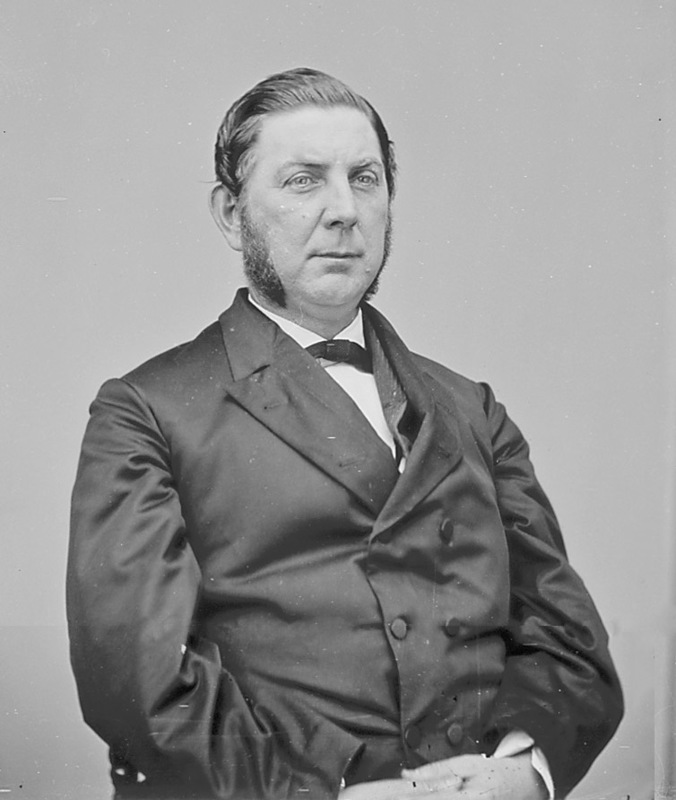
George Yeamen fares better. He was a real congressman from the slave state of Kentucky who did indeed vote for the amendment, doing so may have been a factor in his losing re-election in 1866. Yeaman is personally opposed to slavery but is worried that the slaves are not ready for emancipation, nor is the country. I don't know if the real Yeamon thought that but this was another argument used in those days by some moderate conservatives, especially coming from a slave state as Yeaman did. After his failed re-election Yeamon became Ambassador to Denmark then went into academia so he may have made a deal for his vote. Yeaman was not necessarily a Democrat however, he was elected as a member of the Unionist Party, a war time catch-all coalition for pro-war Democrats and Whigs. He is shown in the film as thoughtful and agonizing over the vote and comes off as a decent guy. The actor playing Yeaman does look very much like the real Yeaman.
GEORGE YEAMAN;
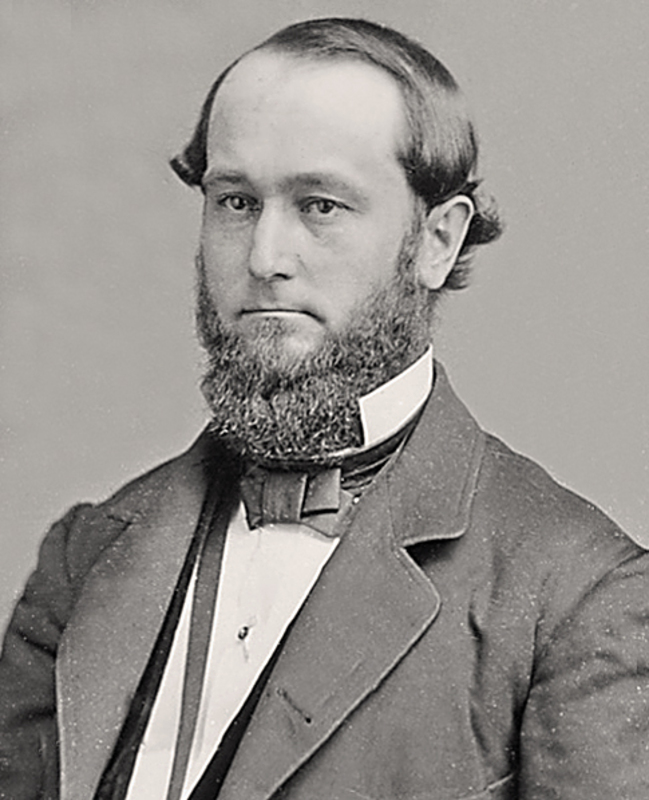
Confederate Vice President Alexander Stephens features in the film (played by Jackie Earl Haley) as the leader of a delegation sent to negotiate a peace treaty and hopefully head off the passage of the anti-slavery amendment. Stephens was short, scrawny and consumptive, with a face pocked by smallpox scars and in constant pain from various ailments. However he was respected as a tough customer; brilliant, articulate, quick tempered and stubborn. All of this is implied in Haley's performance, except for the quick tempered part. Haley is shown bundled up in a shawl which as the real Steven often was. Once when asked what his idea of happiness would be the frail Stephens replied; "To be warm". As a Pre-War Senator from Georgia Stephens had actually opposed secession and was even a friend of Lincoln's, facts not hinted at in the movie. After Lee's surrender at Appomattox Stephens would recommend to Confederate President Jefferson Davis that they surrender and after Davis refused Stephens stomped out and returned to home to Georgia refusing to speak with Davis again. After the war Stephens would actually run for re-election and return to the Senate. Refused admission to the Senate he ran for Congress instead and won again. Although he was in poor health all his life he served until his death in 1878.
ALEXANDER STEPHENS;
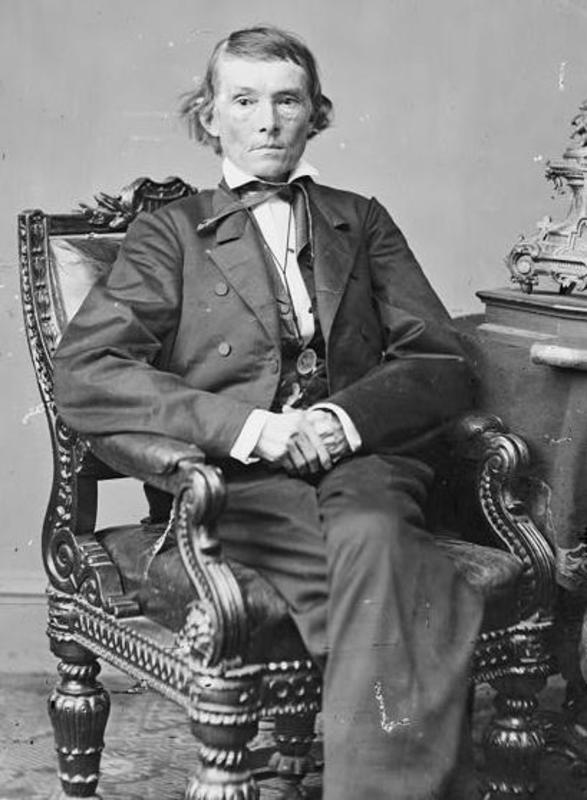
Union General and future President Ulysses Grant appears in the film as played by British actor Jarred Harris, previously known for playing Professor Moriarty in the last Robert Downy jr Sherlock Holmes movie. His Grant is a quiet, unpretentious, taciturn man who Lincoln confides in. They share a desire to make sure the war is ended decisively but not vindictively. All this conforms with the real Grant who Haris resembles. In the 1989 mini-series Grant was played in a similar vein by the late James Gammon who ironically also played yet another general turned president, Zachary Taylor, in another movie. Personally I preferred Gammon's somewhat more droll performance to the understated Harris but there's nothing wrong with Harris as Grant.
ULYSSES GRANT;
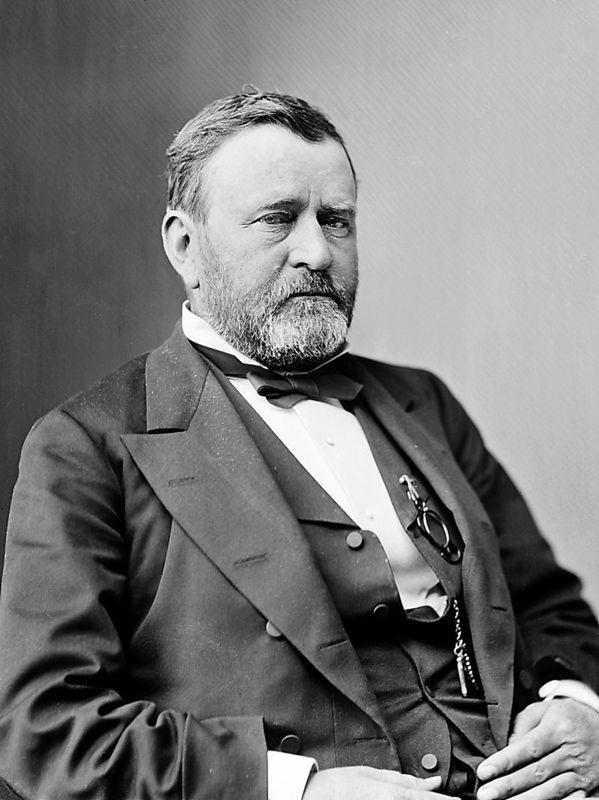
Ben Wade and Charles Sumner are two more Radical Republican leaders, they are Senators rather than Congressmen where the film's action takes place so we don't see much of them but they were real figures as well. Sumner was another humorless, quick tempered man known for his sharp tongue. In a notorious incident just prior to the war he was attacked on the floor of the Senate by Southern congressman Preston Brooks who he had offended. Sumner was beaten with a cane so viciously that he spent the next few years under a doctor's care and suffered permanent damage. In the film Sumner is shown as tall and imposing as well having the courtly manners of a gentleman. None of this jibes with the real Sumner who was a dour, frail man who by that time had to walk with a cane. Presumably these changes were made because the real Sumner would have looked and acted too much like Thad Stevens and might have confused the audience. By contrast Ohio Senator Ben Wade was a big, blustery, brawler who swaggered through the ranks of the Senate daring prickly Southern congressmen to take a swing at him. None ever did. After the attack on Sumner, and another episode in which a Southern Senator pulled a gun on Senator Thomas Hart Benton, Wade announced that he would regard any more such attacks, or any more challenges to a duel as an attack on himself to be responded to in kind. Oddly enough Southern congressmen who were notorious for challenging Northerners to duels whenever they were offended, which was often, were notably reluctant to take on Wade. In the movie Wade is big and blustery but doesn't really convey the loud, larger-than-life personality of the real Wade. Sumner died 1874, still in office but Wade wore out his welcome and was denied renomination in 1868 and died in 1878.
SUMMER ATTACKED BY BROOKS;
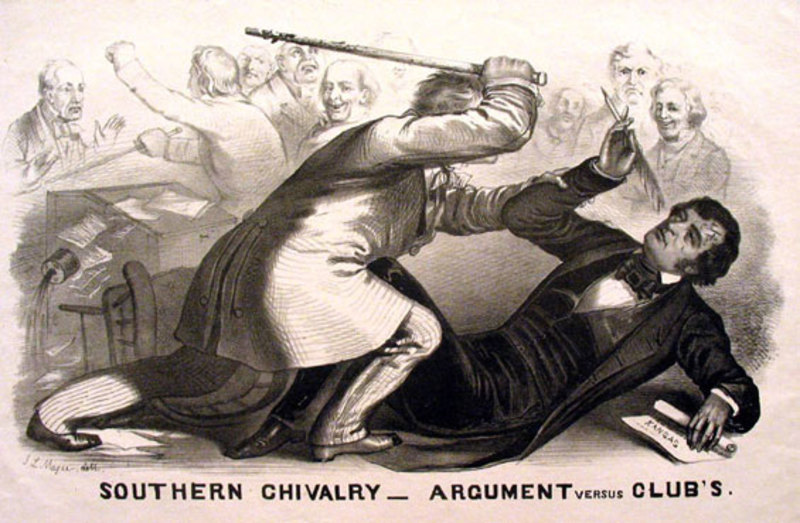
In the movie there are a trio of lobbyists employed by Lincoln to woo Democratic swing votes. They are played by James Spader, Tim Blake Nelson and John Hawkes. Somewhat surprisingly they are actually based on real people although the real figures are by this point too obscure to know how much they may have resembled the characters in the film. Their tactics of using promises of patronage jobs to buy votes were common enough at the time, and perfectly legal until the passage of the aforementioned Pendleton Act, although as we have seen at least some of the Democrats needed no such bribes for their votes anyway so the importance of such tactics in this vote seam be somewhat overstated.
At the end of the movie as the final vote is called a number of congressmen are shown calling out their votes, some of these names are real and some are made-up. This would have been a chance to have cameo appearances by some real congressmen including the aforementioned Ignatius Donnelly and George Julian. There are a few other real Congressman who could have popped up to add some colour and provide a few in-jokes for history buffs including James Garfield, John Todd Stuart, Oakes Ames and William Windom.
Garfield is of course the most famous due to his later becoming President. In 1864 he was a freshman Republican congressman with an impressive war record but too new to be considered a leader. He was a supporter of Radical Thad Stevens although he would later moderate his views as he moved up the political ladder. He would make it to the Presidency in 1880 only to get shot and die less than a year later, becoming the second President to be assassinated after Lincoln himself. He did have a cartoon cat named after him though so there's that.
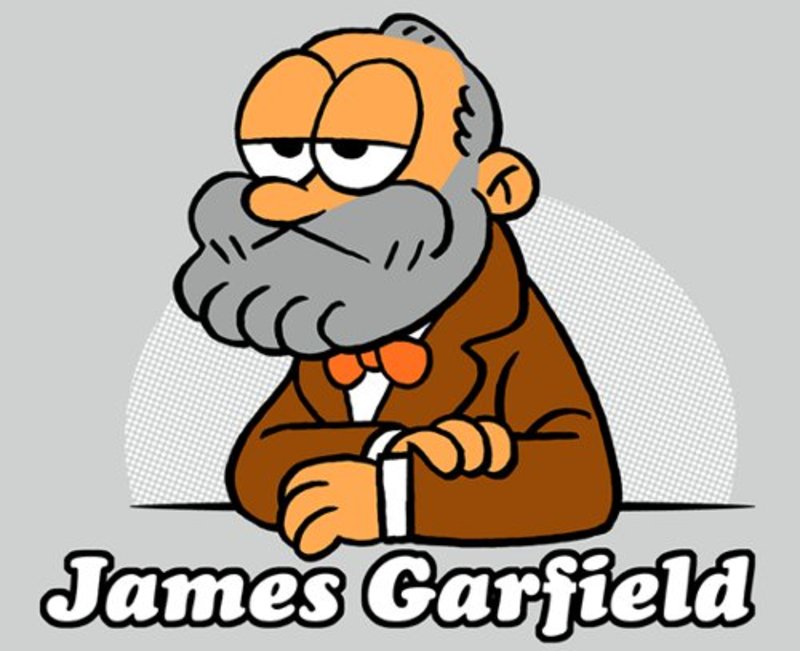
John Todd Stuart was an Illinois Democratic congressman who was actually an in-law and friend of Lincoln's being a cousin of Mary Todd, who he was close to. Years earlier Stuart had been a business partner of Lincoln's and had encouraged him to become a lawyer and enter politics. They fell out over slavery and the Civil War however. Stuart was an arch states-rights conservative who opposed emancipation and frequently lobbied Lincoln to drop it. He lost his re-election in 1864 but was still in the House for the debate and vote covered by the film. Given the family ties the lack of this character from the film is a huge oversight. Surely a couple of scenes where he argues with Lincoln and Mary Todd Lincoln would have been a no brainer dramatically speaking. After 1865 Stuart retired from politics and returned to the law. He died in 1885.
JOHN TODD STUART;
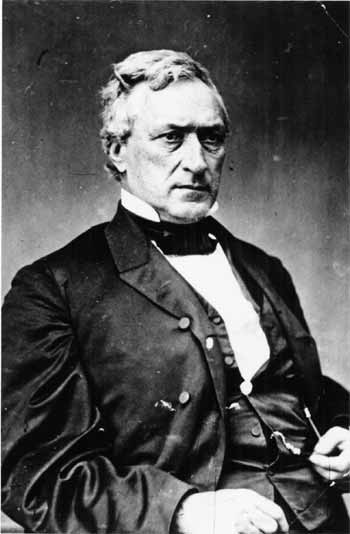
Ames was a Republican congressman from Massachusetts whose biggest claim to fame was as the ringleader of the Credit Mobiler scandal in 1872 which forced him out of congress in disgrace, ruining Schuyler Colfax in the process. Ames was in fact so guilty that congress took the unusual step of censuring him. Ames died in disgrace the next year. William Windom was a less notable figure but he gets a trivial footnote as the great-grandfather of his namesake, actor William Windom, best known for playing the racist prosecutor in the classic film "To Kill A Mockingbird" and a crazed commander on "Star Trek" who tries to kill Kirk. You know trekkies would have enjoyed that one at least.
WILLIAM WINDOM (NOT THE CONGRESSMAN);
